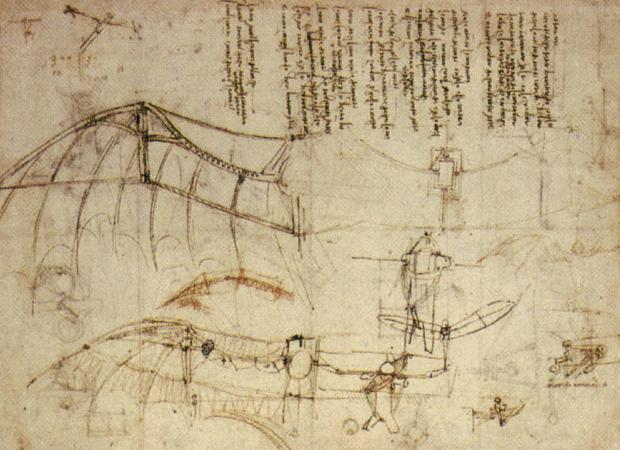The thought of flying like a bird is among the oldest of human dreams. One of the most famous legends of the ancient Greeks, talks about Icarus, who glued wings with wax to himself and soared into the sky!
While he was flying toward the sun, the wax melted, and Icarus plunged into the sea and drowned. Icarus has become a symbol of man's aspirations to reach the celestial nowhere.
Leonardo Da Vinci, one of the greatest artists of the Renaissance, drew sketches for some kind of flying machine that will run on manpower. Also many other artists and dreamers, hundreds of years ago dreamed of flying “like a bird”.
But then no one has managed to invent a machine heavier than air, which would have its own drive.
Some, indeed, even doubted that such a machine is even possible to make.
Some, indeed, even doubted that such a machine is even possible to make.
The first man who proved that it is indeed possible was Professor Samuel Langley, from the Smithsonian Institution in Washington. He made two machines 4.5 meters long and 3.5 meters wide, which were powered by steam engines from one and a half horsepower.
In 1896 these two models successfully flew but in 1903, during a test flight, one machine crashed on October 7th, 1903.
Soon after on December 17, 1903, the American brothers Orville and Wilbur Wright were able to successfully fly for the first time in a machine heavier than air, which had its own motive power.
In Kitty Hawk, in North Carolina, they made a flight of 36 meters for 12 seconds, and when the second flight of 260 meters for 59 seconds.










